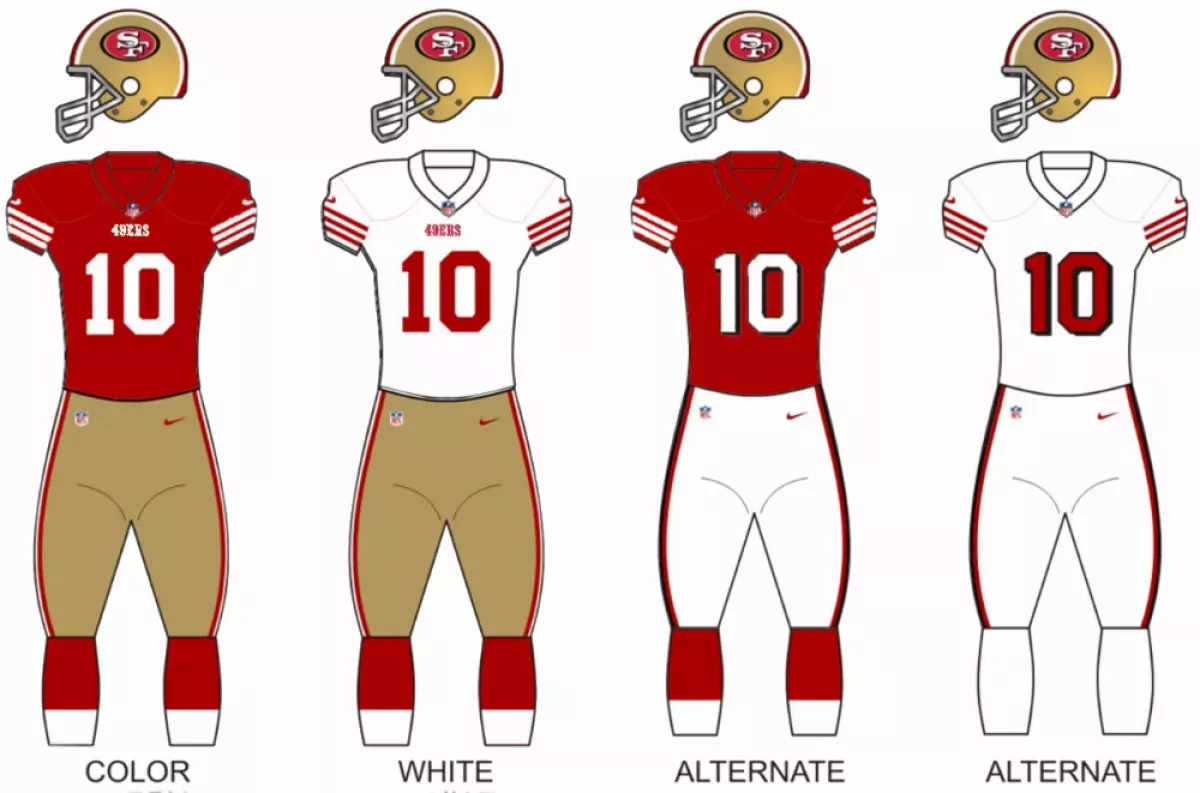The San Francisco 49ers are a professional American football team based in the San Francisco Bay Area. They compete in the NFL as part of the NFC West division. Their home games are played at Levi's Stadium in Santa Clara, California. The team's name pays homage to the prospectors of the California Gold Rush.
1910: Tony Morabito Born
In 1910, Tony Morabito, the former owner of the 49ers, was born.
1919: Victor Morabito Born
In 1919, Victor Morabito, one of the owners of the 49ers after Tony Morabito's death, was born.
1921: Louis G. Spadia Born
In 1921, Louis G. Spadia, who became the general manager of the 49ers, was born.
1946: Joined AAFC
In 1946, the San Francisco 49ers joined the All-America Football Conference (AAFC) as an original member.
1946: Inception of the San Francisco 49ers
In 1946, upon the team's inception, the San Francisco 49ers wore dark or cardinal red uniforms.
1948: Uniform Change to Scarlet Red and Gold
In 1948, the San Francisco 49ers switched their uniforms to scarlet red jerseys and gold pants, along with a gold helmet featuring a single red stripe.
1949: Adoption of Three Stripes to Uniforms
In 1949, the San Francisco 49ers adopted three stripes to their red jerseys and wore gold helmets and pants for their first season in the NFL.
1949: Joined NFL
In 1949, the San Francisco 49ers joined the National Football League (NFL) following the merger of the AAFC and the NFL.
1950: Joined National Football League
In 1950, the San Francisco 49ers became part of the National Football League.
1951: First Game
In 1951, the 49ers and Cardinals initially met in 1951 and would meet occasionally until 2000
1953: Change to Red Helmets and Silver Pants
In the 1953 season, the San Francisco 49ers wore red helmets with a gold stripe, paired with silver pants that had a single red stripe.
1955: Introduction of Unique Uniform Elements
The 1955 season was unique as the San Francisco 49ers wore white pants with a black stripe bordered by two red stripes, along with shadow drop numbers on their red jerseys.
1956: Switch to White Helmets and Pants
In 1956, the San Francisco 49ers switched to white helmets without stripes and white pants with a red stripe.
October 27, 1957: Tony Morabito's Death
On October 27, 1957, 49ers owner Tony Morabito died of a heart attack during a game against the Chicago Bears. The 49ers won the game 21–17.
1957: First White Road Jerseys
In 1957, the San Francisco 49ers wore red jerseys, a gold helmet without stripes, and gold pants without stripes. The 49ers wore white on the road for the first time, as dictated by the NFL.
1958: Addition of TV Numbers to Sleeves
In 1958, the San Francisco 49ers wore red and gold. Their white jersey had a single shoulder loop stripe, and TV numbers were added to the sleeves of both home and away jerseys.
1959: Switch to Red and Platinum Gold
In 1959, the San Francisco 49ers switched to red and platinum gold (appearing as silver), continuing with double shoulder loop stripes on their white jerseys.
1960: Addition of Northwestern Stripes to Helmets
In 1960, the San Francisco 49ers added Northwestern red stripes to their helmets, featuring a thicker middle stripe bordered by two thinner stripes.
1960: Shotgun Formation Introduced
In 1960, the shotgun formation was introduced by 49ers' coach Red Hickey. The formation was used for the first time in 1960 and enabled the 49ers to beat the Baltimore Colts.
1961: Fast Start Using Shotgun
In 1961, the 49ers had a fast 4–1 start primarily using the shotgun formation.
1962: SF Logo Introduction
From 1962, the 49ers' logo has been the iconic "SF" within the center of a red oval.
1962: Frustrating Season
In 1962, the 49ers had a frustrating season winning only 6 games.
1962: Introduction of the Modern Helmet Design
In 1962, the San Francisco 49ers introduced the helmet design they have mostly worn since: a white stripe bounded by two red stripes, with the red oval and SF logo on the sides.
1963: Losing Record
In 1963, the 49ers had a losing record.
May 10, 1964: Victor Morabito Died
On May 10, 1964, Victor Morabito died at the age of 45.
1964: Victor Morabito's Death
In 1964, Victor Morabito, one of the owners of the 49ers, passed away.
1964: Color Change to 49er Gold
In 1964, all silver elements were changed to "49er Gold" for the San Francisco 49ers uniforms, and new beige-gold pants with a red-white-red tri-stripe were introduced.
1965: Alternate Logo Created
In 1965, an alternate logo with a shield-shaped crest formed from the number "49", with a football in the upper right quadrant and "SF" in the lower-left quadrant was created for marketing purposes.
1965: Rebound Season
In 1965, the 49ers rebounded nicely to finish with a 7–6–1 record, led by John Brodie.
1966: Lou Spadia Named Team President
In 1966, the Morabito widows named Lou Spadia team president.
1967: 49ers defeat Raiders in first exhibition game
In 1967, the first exhibition game between the San Francisco 49ers and the Oakland Raiders ended with the NFL 49ers defeating the AFL Raiders 13–10.
1968: Bill Walsh becomes offensive coordinator for the Cincinnati Bengals
In 1968, Bill Walsh became Paul Brown's offensive coordinator with the Cincinnati Bengals.
1968: Dick Nolan Hired
In 1968, Dick Nolan was hired as the head coach of the 49ers.
1969: Chiefs First Championship Victory
In Super Bowl LIV, the Kansas City Chiefs had their first championship victory since 1969.
1970: 49ers win against Raiders in Oakland
After the 1970 merger, the San Francisco 49ers won against the Oakland Raiders in Oakland 38–7.
1970: Division Champions
Between 1970 and 2023, the San Francisco 49ers were division champions 22 times, establishing themselves as a successful team.
1970: Mike Nolan's father led team to playoffs
From 1970 to 1972, Dick Nolan, Mike Nolan's father, led the team to three consecutive playoff appearances.
1970: Start of Numeral Change
From 1970 to 1974, the San Francisco 49ers began a gradual change from sans-serif to serifed block numerals on their uniforms.
1970: Season Start
In 1970, the 49ers started the season 7–1–1.
1970: Cowboys defeat 49ers in NFC Championship
In 1970, the Dallas Cowboys defeated the San Francisco 49ers in the NFC Championship game.
1970: Teams Placed in Opposite Conferences
In 1970, the San Francisco 49ers and Cleveland Browns were placed in opposite conferences in the NFL, which contributed to the rivalry fading.
1970: Divisional Title and Playoff Run
In 1970, the San Francisco 49ers won their first divisional title, defeated the Minnesota Vikings in the divisional playoff game, and lost to the Dallas Cowboys in the NFC Championship game. Nolan was also named NFL Coach of the Year for 1970.
1970: AFL-NFL Merger
In 1972, the San Francisco 49ers became the only franchise to win their first three divisional titles after the 1970 AFL–NFL merger.
1971: Cowboys defeat 49ers in NFC Championship
In 1971, the Dallas Cowboys defeated the San Francisco 49ers in the NFC Championship game for the second consecutive year.
1971: Moved to Candlestick Park
In 1971, the San Francisco 49ers moved from Kezar Stadium to Candlestick Park, changing their home venue.
1971: Second Divisional Title
In 1971, the San Francisco 49ers won their second straight divisional title and defeated the Washington Redskins in the divisional playoff game but lost to the Dallas Cowboys in the NFC Championship game.
1972: Mike Nolan's father led team to playoffs
From 1970 to 1972, Dick Nolan, Mike Nolan's father, led the team to three consecutive playoff appearances.
1972: Cowboys defeat 49ers in Divisional Playoff Game
In 1972, the Dallas Cowboys defeated the San Francisco 49ers in the Divisional Playoff Game.
1972: Third Consecutive Divisional Title
In 1972, the San Francisco 49ers won their third consecutive NFC West title but lost to the Dallas Cowboys in the divisional playoffs.
1972: End of Shield Logo Use
In 1972, the alternate logo with a shield-shaped crest that was created in 1965, was discontinued for marketing purposes.
1973: Ended NFC West Title Run
In 1973, the San Francisco 49ers ended their run at the top of the NFC West with a 5–9 record.
1974: Completion of Numeral Change
From 1970 to 1974, the San Francisco 49ers completed a gradual change from sans-serif to serifed block numerals on their uniforms.
1974: Drafted Wilbur Jackson
In 1974, the San Francisco 49ers drafted Wilbur Jackson from the University of Alabama.
1975: Bill Walsh Leaves the Bengals
In 1975, Bill Walsh ended his time as offensive coordinator for the Cincinnati Bengals.
1975: Final Season as Coach
In 1975, the San Francisco 49ers dropped to 5–9, marking Dick Nolan's final season as coach.
1976: Best Running Game
In 1976, the San Francisco 49ers featured one of the best running games in the NFL, with Delvin Williams emerging as an elite back.
1976: Switch to Thick Pant Striping
In 1976, the San Francisco 49ers switched from thin stripes to a very thick pant striping, during which white jerseys were also worn at home for most of that season.
March 1977: Team sold to Edward J. DeBartolo Jr.
In March 1977, the San Francisco 49ers were sold to Edward J. DeBartolo Jr.
1977: Consecutive Games Scored
From 1977 to 2004, the San Francisco 49ers scored in 420 consecutive games, setting an NFL record.
1977: Bill Walsh hired by Stanford University in 1977
In 1977, Bill Walsh was hired by Stanford University, where he coached for two seasons.
1977: Notre Dame wins national title in 1977
In 1977, Joe Montana led the Fighting Irish to the national title.
1977: The 49ers finished the 1977 season 5-9
In 1977, the 49ers had a disappointing season, finishing with a 5-9 record under coach Ken Meyer, losing their first five games. Despite some bright spots from players like Tommy Hart, Cleveland Elam, Wilbur Jackson, and Delvin Williams, questionable offseason moves by general manager Joe Thomas, including the acquisition of O. J. Simpson, negatively impacted the team's performance.
1978: Bill Walsh hired as head coach in the 1978 off-season
In the off-season of 1978, Bill Walsh was hired as the head coach of the 49ers.
1978: 49ers finish the 1978 season 2-14
The 1978 season was disastrous for the 49ers, culminating in a 2-14 record. Although O.J. Simpson led the team in rushing, his performance was hindered by injuries, signaling the decline of his career. Despite the struggles, rookie quarterback Steve DeBerg started his 49ers career in 1978, along with Paul Hofer and Randy Cross.
1979: Montana leads comeback victory at the 1979 Cotton Bowl Classic
At the 1979 Cotton Bowl Classic, Joe Montana led Notre Dame to a comeback victory against the University of Houston, culminating in a game-winning touchdown pass on the final play.
1979: Bill Walsh Hired by the 49ers in 1979
In 1979, Bill Walsh was hired by the San Francisco 49ers after coaching at Stanford University.
1979: McKittrick became offensive line coach
In 1979, Bobb McKittrick became the 49ers offensive line coach. He died of cancer following the 1999 season.
1979: First draft pick traded to the Bills
In 1979, the 49ers did not have their first draft pick because it was traded to the Bills as part of the O. J. Simpson deal. Joe Thomas was fired following the disappointing 1978 season.
1979: 49ers Finish Last in NFC West
In 1979, the 49ers finished last in the NFC West for the first time, ending what had been the NFL's longest active streak for not finishing last in a division.
1979: Playoff drought began since 1979
In 2000, the 49ers missed the playoffs for the second straight season for the first time since 1979 and 1980.
1979: 49ers Draft Joe Montana and Dwight Clark in 1979
In the 1979 NFL draft, the 49ers drafted Joe Montana and Dwight Clark. The Cowboys passed on Montana, and the 49ers selected him. Walsh discovered Clark while scouting Steve Fuller.
1979: Worst start since 1979
The 2010 season started with the 49ers heavy favorites to win the NFC West, but they started 0–5, their worst start since the dark days of 1979.
1980: 49ers finish the 1980 season losing 11-5
In 1980, the 49ers finished the season with a 6-10 record. Steve DeBerg threw for over 3,600 yards, while O. J. Simpson had a final season with only 460 rushing yards. The 49ers alternated DeBerg and Montana at quarterback during the season.
1980: First Losing Season Since 1980
In 1999, the 49ers suffered their first losing season in a non-strike year since 1980, marking the first time they did not win at least ten games in a season since 1980.
1980: Playoff drought began since 1980
In 2000, the 49ers missed the playoffs for the second straight season for the first time since 1979 and 1980.
1980: Comeback victory against the New Orleans Saints in Week 14
In Week 14 of the 1980 season, the 49ers, led by Joe Montana, completed a comeback against the New Orleans Saints, winning 38-35 in overtime. This win helped cement Montana's role as the team's full-time quarterback.
1981: Beginning of 49ers' Super Bowl Run
From 1981 to 1994, the 49ers' run of five Super Bowl wins in 14 seasons solidified them as one of the NFL's great dynasties.
1981: The Catch in the NFC Championship
In 1981, Joe Montana completed a game-winning pass to Dwight Clark, known as "The Catch", in the NFC Championship game against the Dallas Cowboys.
1981: 49ers win Super Bowl XVI
In 1981, the 49ers finished the regular season with a 13-3 record. They won Super Bowl XVI 26-21 against the Cincinnati Bengals and defeated the New York Giants and Dallas Cowboys in the playoffs. The defensive backfield and Montana were key contributors.
1981: 49ers Win Divisional Round Against Giants
In 1981, the Joe Montana-led 49ers defeated the New York Giants 38-24 in the divisional round at Candlestick Park and went on to win the Super Bowl championship that season.
1981: Super Bowl Championship
In 1981, the San Francisco 49ers won a Super Bowl championship, marking the beginning of a successful era.
1982: Raiders upset defending Super Bowl champion 49ers
In 1982, the Oakland Raiders upset the defending Super Bowl champion San Francisco 49ers in San Francisco, winning 23–17.
1982: 49ers finish the 1982 season with a 3-6 record
The 1982 season was a step back for the 49ers, ending with a 3-6 record in a strike-shortened season. Joe Montana stood out by passing for 2,613 yards in nine games.
1983: 49ers win their second NFC Western Divisional Title
In 1983, the 49ers finished with a 10-6 record, winning their second NFC Western Divisional Title. Joe Montana passed for 3,910 yards and 26 touchdowns. They lost to the Washington Redskins in the NFC Championship game, 24-21.
1984: 49ers finish 15-1 and win Super Bowl XIX
In 1984, the 49ers achieved a 15-1 regular-season record and won Super Bowl XIX, defeating the Miami Dolphins 38-16. The entire defensive backfield was elected to the Pro Bowl.
1984: 49ers win Super Bowl
In 1984, the 49ers won the Super Bowl, resulting in them receiving the 28th overall pick in the 1985 NFL draft.
1984: 49ers Win Divisional Round Against Giants
In 1984, the Joe Montana-led 49ers defeated the New York Giants 21-10 in the divisional round at Candlestick Park and went on to win the Super Bowl championship that season.
1985: 1985 Chicago Bears tie the 49ers' record for most regular-season wins
In 1985, the Chicago Bears tied the 49ers' record for most regular-season wins.
1985: Jerry Rice's rookie season and playoff elimination
In 1985, the San Francisco 49ers drafted Jerry Rice and finished the regular season with a 10-6 record. Despite Rice's impressive rookie season, the 49ers were eliminated from the playoffs by the New York Giants.
1985: Dominance of the 1985 Chicago Bears
In 1994, the San Francisco 49ers exhibited a sustained dominance not seen since the 1985 Chicago Bears, with an average margin of victory of nearly 20 points per game during their winning streak.
September 15, 1986: Joe Montana placed on injured reserve list
On September 15, 1986, Joe Montana was placed on the injured reserve list due to a severe back injury. Jeff Kemp took over as the starting quarterback, and the 49ers went 4-3-1 in September and October.
1986: Giants defeat 49ers at Giants Stadium
In 1986, the New York Giants defeated the San Francisco 49ers 49–3 at Giants Stadium.
1986: Montana's injury and 49ers' playoff loss
In the 1986 season, Joe Montana suffered a severe back injury, leading to Jeff Kemp becoming the starting quarterback for a period. Montana later returned, and the 49ers clinched the NFC West title but lost to the New York Giants in the playoffs.
1987: 49ers' dominant season and playoff loss
In 1987, the 49ers had a league-best 13-2 record, with Joe Montana throwing 31 touchdown passes and Jerry Rice setting an NFL record with 22 touchdown receptions. Despite being favorites, they lost to the Minnesota Vikings in the NFC divisional round.
1988: 49ers begin streak of consecutive road victories
Between 1988 and 1990, the 49ers set a league record with 18 consecutive road victories.
1988: Bill Walsh Retires
In 1988, after winning his third Super Bowl, Bill Walsh retired as the head coach of the 49ers.
1988: 49ers win Super Bowl XXIII
In 1988, despite a shaky start to the season and a quarterback controversy, the 49ers finished 10-6 and won Super Bowl XXIII against the Cincinnati Bengals 20-16, with Joe Montana leading a game-winning drive and Jerry Rice being named Super Bowl MVP.
1988: Headquarters Moved
Since 1988, the San Francisco 49ers have been headquartered in Santa Clara.
1989: Seifert Wins Super Bowl in First Year
In 1989, George Seifert, in his first year as head coach, led the 49ers to a Super Bowl victory.
1989: Joe Montana named MVP, Jerry Rice dominates
In 1989, Joe Montana was named NFL Most Valuable Player after throwing for 3,521 yards and 26 touchdowns. Jerry Rice led the league with almost 1,490 receiving yards and 17 touchdowns, and the 49ers finished 14-2.
1989: Black Outlining Added to Logo
In 1989, a black outlining was added to the intertwined "SF" in the 49ers' logo.
1989: Loma Prieta Earthquake
In 1989, events were impacted due to the Loma Prieta earthquake.
1989: 49ers win Super Bowl XXIV
In 1989, the 49ers defeated the Denver Broncos 55-10 in Super Bowl XXIV, setting records for points scored and widest margin of victory in a Super Bowl. Joe Montana won his third Super Bowl MVP.
1989: Helmet Design
The San Francisco 49ers regular 1989–95 design gold helmet was worn with the throwback uniform, as there was no logo on the 1955 helmet.
January 14, 1990: NFC Championship Game Victory over Rams
On January 14, 1990, the San Francisco 49ers defeated the Los Angeles Rams 30–3 in the NFC Championship Game at Candlestick Park, advancing to Super Bowl XXIV.
1990: Roger Craig and Ronnie Lott depart
Following the 1990 season, the 49ers released Roger Craig and Ronnie Lott, who then joined the Los Angeles Raiders via Plan B free agency.
1990: 49ers' Super Bowl bid thwarted by Giants
In 1990, the 49ers started the season with 10 consecutive wins and finished 14-2. They lost the NFC championship game to the New York Giants 15-13, ending their attempt at a "three-peat".
1990: 49ers Start Season 10-0
In 1990, the 49ers started the season with a 10-0 record but eventually lost in the NFC Championship Game.
1990: Giants Upset 49ers in NFC Championship
In 1990, the New York Giants upset the San Francisco 49ers 15–13 in the NFC championship, ruining the 49ers hopes of a Super Bowl three-peat after Roger Craig lost a fumble late in the fourth quarter and let the Giants score on a last-second field goal. Giants also went on to win their first two Super Bowl championships both seasons.
1990: Beat 49ers in Lambeau Field
In 2012, the 49ers beat the Packers in Lambeau Field week 1 for the first time since 1990, and again in the NFC Divisional game that same season.
1991: 49ers miss playoffs
In 1991, the 49ers finished with a 10-6 record but missed the playoffs after losing the head-to-head tiebreaker to the Atlanta Falcons.
December 28, 1992: Joe Montana returns from injury
On December 28, 1992, Joe Montana returned from an elbow injury during a Monday night game against the Detroit Lions, playing the second half. He completed 15 of 21 passes for 126 yards and 2 touchdowns, contributing to the 49ers' 24-6 victory.
1992: Quarterback controversy in full swing
At the end of the 1992 season, there was a full-blown quarterback controversy surrounding Joe Montana and Steve Young.
1992: Cowboys win NFC Championship against 49ers
In 1992, the Dallas Cowboys defeated the San Francisco 49ers in the NFC Championship game. The victor of this game went on to win the Super Bowl.
1993: 49ers lose NFC Championship
In 1993, the 49ers finished the season with a 10-6 record and lost to the Dallas Cowboys in the NFC Championship game.
1993: 49ers defeat Giants in Divisional Round
In 1993, the San Francisco 49ers defeated the New York Giants 44–3 in the divisional round.
1993: Montana traded to the Kansas City Chiefs
Prior to the 1993 season, Joe Montana was traded to the Kansas City Chiefs after discussions with the owner and coach of the 49ers.
1994: Throwback Uniforms for NFL's 75th Anniversary
During the 1994 season, the San Francisco 49ers wore a version of their 1955 uniforms as throwbacks to celebrate the NFL's 75th anniversary, which featured white pants with thinner red-black-red striping.
1994: Seifert Wins Additional Super Bowl
In 1994, George Seifert won another Super Bowl as the head coach of the 49ers.
1994: 49ers sign free agents and set scoring record
In 1994, the 49ers signed several star free agents and saw key contributions from rookies. Despite early struggles, the team rallied to a 13–3 record, setting a new record for total combined regular-season and post-season points scored and eventually winning Super Bowl XXIX.
1994: Throwback Uniforms
In 1994, the Niners donned white pants full-time for the 1996 season (also wearing them for the 1997 season and 1998 preseason,)
1994: 49ers win NFC Championship against Cowboys
In 1994, the San Francisco 49ers defeated the Dallas Cowboys in the NFC Championship game. The victor of this game went on to win the Super Bowl.
1994: Super Bowl Championship
In 1994, the San Francisco 49ers won another Super Bowl championship, adding to their legacy.
1994: 49ers Advance to NFC Championship Game
In 1997, the 49ers advanced to the NFC championship game for the first time since 1994, where they again met the Green Bay Packers at Candlestick Park, but lost 23–10.
1994: Uniform Style
In 2018, the San Francisco 49ers unveiled a new alternate uniform, made in the style of 1994.
1995: Josephine V. Morabito's Death
In 1995, Josephine V. Morabito, Tony Morabito's widow and one of the owners of the 49ers, passed away.
1995: 49ers Make Playoffs, Eliminated by Packers
In 1995, the 49ers finished with an 11–5 record, won the division, and made the playoffs, but were eliminated by the Green Bay Packers in the Divisional Round.
1995: Packers Upset the 49ers
In 1995, the Green Bay Packers upset the San Francisco 49ers in the NFC Divisional game at Candlestick Park, ending any chance of a Super Bowl repeat.
1995: End of an Era for Uniform Design
Until 1995, the San Francisco 49ers wore the uniform ensemble of red and white jerseys, and beige-gold pants with thick striping, with only a few minor changes.
1996: Gold Trimming Added to Logo
In 1996, gold trimming was added inside the oval of the 49ers' logo.
1996: 49ers Postseason Appearance, Loss to Packers
In 1996, the 49ers finished with a 12–4 record and made the postseason, but were again eliminated by the Green Bay Packers in the Divisional Round.
1996: New Uniform Design and Commemorative Patch
In 1996, the San Francisco 49ers celebrated their 49th anniversary by introducing a new uniform design with a deeper cardinal red jersey and a commemorative jersey patch, along with white pants.
1996: Regular Uniforms
In 1996, the helmet and jersey design with the 1998 gold pants was worn as the team's regular uniforms until the end of the 2008 season.
January 17, 1997: George Seifert Resigns, Steve Mariucci Hired
On January 17, 1997, George Seifert resigned as the 49ers head coach. On the same day, Steve Mariucci was hired as his replacement.
1997: White Pants Full-Time
In 1997, the Niners donned white pants full-time for the 1996 season (also wearing them for the 1997 season and 1998 preseason,)
1997: Last NFC West Win since 1997
In 2002, the 49ers won the NFC West for the first time since 1997, with the division-clinching game coming on a last-second touchdown pass to Terrell Owens against the Dallas Cowboys.
1997: Team Reached NFC Championship for first time
In 2011, the team reached the NFC championship for the first time since 1997 and faced the New York Giants.
1997: 49ers Clinch NFC West and Number One Seed
On December 29, 2019, the 49ers defeated the Seahawks to clinch the NFC West and the number one seed for the first time since 1997.
1998: Switch Back to Gold Pants
For the 1998 regular-season opener, the San Francisco 49ers switched back to gold pants, featuring a more metallic gold and oval "SF" logos on the hip.
1998: 49ers started season 2-0
In 1998, 49ers started the season 2-0, for the first time since then.
1998: Eddie DeBartolo Jr. Pleads Guilty, Suspended
In 1998, Eddie DeBartolo Jr. pleaded guilty to a failure to report a felony charge related to a corruption investigation and was suspended from active control of the 49ers for one year.
1998: Jerry Rice Returns, Hearst's Touchdown Run
In 1998, Jerry Rice returned from his knee injury in Week 1. Garrison Hearst had a 96-yard touchdown run in overtime. Steve Young threw for 4,170 yards and 36 touchdowns. The 49ers finished 12–4 and earned a wildcard berth.
1998: Minnesota Vikings Regular-Season Scoring Record
In 1998, the Minnesota Vikings scored 556 regular-season points, contributing to a discussion of total points compared to the 1994 49ers.
1998: 1998 Minnesota Vikings tie the 49ers' record for most regular-season wins
In 1998, the Minnesota Vikings tied the 49ers' record for most regular-season wins.
1998: "The Catch II"
In 1998, the San Francisco 49ers exacted revenge against the Green Bay Packers in the NFC Wild Card round with Terrell Owens' 25-yard game-winning touchdown reception off a Steve Young pass, known as "The Catch II".
1998: Gold Pants Worn As Regular Uniform
In 1998, the helmet and jersey design with the 1998 gold pants was worn as the team's regular uniforms until the end of the 2008 season.
1998: Garrison Hearst's Ankle Injury
In 2001, Garrison Hearst became the first player in NFL history to come back to football after suffering avascular necrosis, which was an injury suffered in the 1998 divisional playoffs.
1998: Garrison Hearst's Ankle Break and 49ers Loss
In the 1998 divisional round of the playoffs against the Atlanta Falcons, Garrison Hearst suffered an ankle break after his foot was caught in the Georgia Dome turf. The 49ers lost that game 20–18.
September 27, 1999: Steve Young's Career-Ending Injury
On September 27, 1999, Steve Young suffered a career-ending concussion in a game against the Arizona Cardinals after a brutal hit from Aeneas Williams.
1999: Young's Injury, Garcia Takes Over
In 1999, Steve Young suffered a career-ending injury in a game against the Arizona Cardinals. Jeff Garcia took over as starting quarterback. The 49ers lost 11 of their last 12 games, their first losing season since 1980.
1999: 49ers Personnel Help Browns Relaunch
In 1999, former San Francisco 49ers president and CEO Carmen Policy and vice president/director of football operations Dwight Clark were hired by the expansion Cleveland Browns in the same roles, helping the Browns relaunch.
2000: Garcia Named Starter, Rice's Final Season
In 2000, Jeff Garcia was named the starting quarterback and broke a franchise record for passing yards. Jerry Rice played his final season with the 49ers. The team missed the playoffs for the second straight season.
2000: Yorks take control of 49ers
In 2000, as part of a settlement, Eddie DeBartolo surrendered controlling interest of the 49ers to the Yorks. Denise York became chair of the board, while John York became CEO.
2000: Cardinals and 49ers meet Occasionally
In 2000, the 49ers and Cardinals initially met in 1951 and would meet occasionally until 2000
2001: 49ers Return to Playoffs, Hearst's Comeback
In 2001, the 49ers finished with a 12–4 record and a wildcard berth. Garrison Hearst returned after recovering from injury and was named NFL Comeback Player of the Year.
2001: Beat 49ers
In 2001, the Packers beat the 49ers eight straight times including once in the 2001 post-season
2001: 49ers defense improves
In 2002, the San Francisco 49ers defense dropped from the 9th-ranked defense in the previous season in 2001 to the 19th-ranked defense.
2002: Falcons moved to NFC South
In 2002, the Atlanta Falcons moved to the NFC South after the realignment, ending their time as division rivals with the San Francisco 49ers in the NFC West.
2002: Divisional Realignment, Playoff Comeback
In 2002, the NFL underwent divisional realignment. The 49ers won the NFC West for the first time since 1997 and had a historic comeback victory against the New York Giants in the Wild Card game, winning 39-38.
2002: Realignment
In 2002, the two teams began an exchange of heated regular season matchups following the NFL's realignment in 2002 that relocated both teams into the same division.
2002: Team's first non-losing season since 2002.
In 2009, the team had their first non-losing season since 2002, with an 8-8 record.
2002: 49ers Comeback Victory against Giants in NFC Wildcard Game
In the 2002 NFC wildcard game, the New York Giants were ahead 38–14 late in the third quarter; however, the San Francisco 49ers came back from the 24-point deficit to beat the Giants with a 39–38 victory.
2003: Turbulent 2003 Season
The 2003 season was filled with turmoil for the 49ers, including a souring relationship between Garcia and Owens after Owens praised backup quarterback Tim Rattay. The team was also plagued by injuries to key players. The 49ers finished with a 7-9 record and missed the playoffs.
2004: Erickson and Donahue Fired After 2-14 Season
After the 2004 season, where the 49ers finished with a franchise-worst 2-14 record, head coach Dennis Erickson and general manager Terry Donahue were fired. The team's poor performance secured them the first pick in the NFL Draft.
2004: Consecutive Games Scored
From 1977 to 2004, the San Francisco 49ers scored in 420 consecutive games, setting an NFL record.
2004: 2004 Pittsburgh Steelers tie the 49ers' record for most regular-season wins
In 2004, the Pittsburgh Steelers tied the 49ers' record for most regular-season wins.
2005: Alex Smith Drafted First Overall
In the 2005 NFL draft, the 49ers selected quarterback Alex Smith with the first overall pick. His rookie season was difficult, and the team finished 4-12.
2005: Failed to have all drafted rookies signed and in training camp on time
The 2009 training camp became the first since 2005 that the 49ers failed to have all drafted rookies signed and in training camp on time.
November 8, 2006: 49ers End Stadium Negotiations with San Francisco
On November 8, 2006, the 49ers ended negotiations with the city of San Francisco regarding the construction of a new stadium. The team planned to build in Santa Clara instead, which already hosted their administrative headquarters and training facility. This decision also ended San Francisco's bid for the 2016 Summer Olympics.
2006: Gore Sets Franchise Record
In 2006, Frank Gore set a franchise record with 1,695 rushing yards and earned his first Pro Bowl appearance. The 49ers swept the Seattle Seahawks and finished the season 7-9.
2006: Trent Dilfer Wears No. 12 as Tribute to John Brodie
In 2006, quarterback Trent Dilfer wore No. 12 with John Brodie's permission as a tribute, unofficially unretiring the number.
2007: Willis Named Defensive Rookie of the Year
In 2007, Patrick Willis was named the AP NFL Defensive Rookie of the Year. The 49ers started the season 2-0, their best start since 1998, but finished the year with a 5-11 record.
2007: Trent Dilfer Wears No. 12 as Tribute to John Brodie
In 2007, quarterback Trent Dilfer wore No. 12 with John Brodie's permission as a tribute, unofficially unretiring the number.
2007: New England Patriots break scoring record
In 2007, the New England Patriots broke the 1994 San Francisco 49ers' record for total combined regular-season and post-season points scored.
2007: 2007 New England Patriots break the 49ers' record for most regular season wins
In 2007, the New England Patriots broke the 49ers' record for most regular-season wins.
October 20, 2008: Mike Nolan Fired, Singletary Named Interim Coach
On October 20, 2008, Mike Nolan was fired after a 2-5 start to the season. Mike Singletary was named interim head coach and led the team to a 5-4 record for the remainder of the season.
2008: End of Regular Uniform
In 2008, the helmet and jersey design with the 1998 gold pants was worn as the team's regular uniforms until the end of the 2008 season.
2008: NFL Rivalries of All Time
In 2008, the rivalry between the Los Angeles Rams and the San Francisco 49ers was considered by many to be one of the greatest NFL rivalries ever, placing No. 8 on Sports Illustrated's "Top 10 NFL Rivalries of All Time" list.
April 25, 2009: 49ers Draft Michael Crabtree
On April 25, 2009, the 49ers selected wide receiver Michael Crabtree with the 10th pick in the first round of the 2009 NFL draft.
October 7, 2009: Crabtree Signs Contract
On October 7, 2009, Michael Crabtree finally reached a contract agreement with the 49ers, after missing the first four games of the regular season.
2009: San Fransisco Won Nine Games
After the 49ers won nine of ten meetings between 2009 and 2013
2009: Uniform Redesign
In 2009, the San Francisco 49ers changed uniforms once again, with a design very similar to the classic, but with a few significant changes.
2009: Singletary hand-picked Raye
In week 3 of the 2010 season, the 49ers fired offensive coordinator Jimmy Raye, who had been hand-picked by Singletary in the 2009 offseason.
June 8, 2010: Measure J Passed for New Stadium
On June 8, 2010, Santa Clara voters approved Measure J with 58.2% of the vote. Measure J authorized the construction of a new stadium in Santa Clara to become the future home of the San Francisco 49ers.
December 27, 2010: Singletary Fired as Head Coach
On December 27, 2010, the 49ers fired Mike Singletary as head coach and named Jim Tomsula as interim head coach for the last game of the season. The 49ers finished 6-10 for the 2010 season.
2010: Five 49ers Go to Pro Bowl
In 2010, five 49ers players were selected to the Pro Bowl: Patrick Willis, Vernon Davis, Frank Gore, Justin Smith, and punter Andy Lee.
January 4, 2011: Baalke Promoted to General Manager
On January 4, 2011, Jed York promoted Trent Baalke to be the permanent general manager of the 49ers.
January 7, 2011: Harbaugh Named Head Coach
On January 7, 2011, Jim Harbaugh was named the new head coach of the 49ers.
August 20, 2011: Fights and Shooting at 49ers-Raiders Pre-Season Game
On August 20, 2011, the pre-season game between the San Francisco 49ers and the Oakland Raiders was marked by fights in restrooms and stands at Candlestick Park, including a shooting outside the stadium in which several were injured.
November 9, 2011: New Stadium Confirmed in Santa Clara
On November 9, 2011, the 49ers confirmed that they would build a new, state-of-the-art stadium in Santa Clara, with plans to have it ready for the 2014 season.
2011: Successful Season After Labor Dispute
After a labor dispute, the 49ers re-signed Alex Smith and had a successful 2011 season under Jim Harbaugh. They finished 13-3, won the NFC West, and reached the NFC Championship game, losing to the New York Giants.
2011: Last Postseason Appearance
In 2002, The 49ers lost to the Tampa Bay Buccaneers in the Divisional round, 31–6. This was the last postseason appearance for the 49ers until the 2011–12 playoffs.
2011: 2011 Green Bay Packers tie the 49ers' record for most regular-season wins
In 2011, the Green Bay Packers tied the 49ers' record for most regular-season wins.
2011: Jim Harbaugh Hired
In 2011, the rivalry began to intensify after the 49ers hired Jim Harbaugh out of Stanford , as he and Seahawks and former USC head coach Pete Carroll had been involved in a lengthy feud.
2011: Giants Win NFC Championship Against 49ers
In the 2011 NFC championship at Candlestick Park, the New York Giants won the game against the San Francisco 49ers on a Lawrence Tynes 31-yard field goal in overtime, 20–17. Kyle Williams fumbled a punt in the crucial minutes of the game, and the Giants went on to win the Super Bowl.
April 3, 2012: Debut of Updated Nike Uniforms
On April 3, 2012, an updated San Francisco 49ers uniform with improved fit and breathable, moisture-resistant fabrics was debuted by Nike, the new league uniform manufacturer, alongside the rest of the NFL teams.
April 19, 2012: Groundbreaking for New Stadium
On April 19, 2012, the groundbreaking ceremony for the new 49ers stadium took place in Santa Clara.
2012: Kaepernick Takes Over as Starting Quarterback
In 2012, Colin Kaepernick took over as the starting quarterback after Alex Smith suffered a concussion. The 49ers advanced to Super Bowl XLVII, but lost to the Baltimore Ravens 34-31.
2012: Beat 49ers in Lambeau Field
In 2012, the 49ers beat the Packers in Lambeau Field week 1 for the first time since 1990, and again in the NFC Divisional game that same season.
2012: 49ers defeat Falcons in NFC Championship
In the 2012 NFC championship, the San Francisco 49ers, led by quarterback Colin Kaepernick, defeated the top-seeded Atlanta Falcons in Atlanta by a score of 28–24.
2012: 49ers Advance to Super Bowl
On January 19, 2020, the 49ers beat the Packers 37–20, advancing to their first Super Bowl since 2012.
2012: Kicker David Akers showed signs of decline
Towards the end of the 2012 season, kicker David Akers began to show signs of decline, missing one field goal of 20–30 yards, two field goals of 30–40 yards, and six field goals of 40–50 yards.
March 6, 2013: Akers Released, Dawson Signed
On March 6, 2013, David Akers was released by the 49ers. Shortly afterwards, the 49ers signed veteran kicker Phil Dawson.
May 8, 2013: Levi's Buys Naming Rights to New Stadium
On May 8, 2013, the San Francisco 49ers announced that Levi Strauss & Co. had purchased the naming rights to their new stadium in Santa Clara for $220.3 million over 20 years, with an option to extend for another five years for around $75 million. The stadium was named Levi's Stadium.
2013: San Fransisco Won Nine Games
After the 49ers won nine of ten meetings between 2009 and 2013
2013: Louis G. Spadia Death
In 2013, Louis G. Spadia, former general manager of the 49ers, passed away.
2013: NFC Championship
In 2013, the matchups regularly grew in intensity through the 2010s, culminating in the two teams meeting in the 2013 NFC Championship which saw Seattle advance and ultimately on to win Super Bowl XLVIII.
2013: 49ers First Playoff Game Since 2013
In their first playoff game since 2013, against the Minnesota Vikings, they dominated the Vikings, defeating them 27–10.
2013: 49ers Finished 12-4
The 49ers finished the 2013 regular season with a 12-4 record and entered the playoffs as a wildcard.
January 5, 2014: 49ers Defeat Packers
On January 5, 2014, the San Francisco 49ers defeated the Green Bay Packers 23-20 in the playoffs.
January 12, 2014: 49ers Defeat Panthers
On January 12, 2014, the 49ers defeated the Carolina Panthers 23-10, advancing to their third straight NFC championship game.
December 28, 2014: Harbaugh and 49ers Part Ways
On December 28, 2014, Jim Harbaugh and the 49ers decided to part ways after the season's final game.
2014: Cardinals Won Eight Games
After the 49ers won nine of ten meetings between 2009 and 2013, the Cardinals won eight straight meetings between 2014 and 2018.
2014: Phil Dawson and Colt McCoy Sign with 49ers
In 2014, long-time Cleveland Browns placekicker and fan favorite Phil Dawson and backup quarterback Colt McCoy signed with the San Francisco 49ers.
2014: Moved to Levi's Stadium
In 2014, the San Francisco 49ers relocated to Levi's Stadium, marking another change in their home venue.
2014: Planned Opening of New Stadium
The 49ers aimed to have their new stadium in Santa Clara ready for the 2014 season, as confirmed on November 9, 2011.
January 14, 2015: Jim Tomsula Hired as Head Coach
On January 14, 2015, Jim Tomsula was hired as the head coach of the 49ers, replacing Jim Harbaugh. Geep Chryst was promoted to offensive coordinator, and Eric Mangini was hired as defensive coordinator.
March 10, 2015: Patrick Willis Announces Retirement
On March 10, 2015, All-Pro linebacker Patrick Willis announced his retirement from the NFL due to repeated injuries to both feet.
April 30, 2015: Unveiling of the First Alternate Uniform
On April 30, 2015, the San Francisco 49ers unveiled their first-ever alternate uniform, consisting of black jerseys and pants with red numerals and striping, at their NFL draft rally.
2015: 49ers Struggle to 5-11 Season
In 2015, the 49ers struggled to a 5–11 season. They scored only 238 points, had Colin Kaepernick benched and ending the season on injured reserve, and were ultimately eliminated from postseason contention in Week 14.
January 4, 2016: Jim Tomsula Fired
On January 4, 2016, the 49ers fired Jim Tomsula after he led them to a 5–11 record during the 2015 season.
January 14, 2016: Chip Kelly Hired as Head Coach
On January 14, 2016, Chip Kelly was hired as the head coach of the 49ers.
October 21, 2016: 49ers Ranked Worst Franchise
On October 21, 2016, ESPN ranked the 49ers as the worst franchise in North America.
December 24, 2016: 49ers Narrowly Defeat Rams
On December 24, 2016, the 49ers narrowly defeated the Los Angeles Rams 22–21, breaking a franchise-record 13-game losing streak.
2016: Kaepernick Kneels During National Anthem
In 2016, Colin Kaepernick began a trend of kneeling during the playing of the national anthem to protest the treatment of minorities in the United States, sparking controversy throughout the NFL.
2016: San Francisco Loses Olympic Bid
In 2016, San Francisco, Los Angeles, and Chicago competed to be the U.S. Olympic Committee's choice to bid on the 2016 games, with Chicago ultimately winning the bid.
2016: Rams Returned To Los Angeles
In 2016, the Rams returned to Los Angeles, the rivalry regained geographic animosity following their return to Los Angeles.
October 2017: Mike Pence Walks Out of 49ers Game
In October 2017, Vice President Mike Pence walked out of a 49ers game upon seeing players kneel during the national anthem.
2017: 49ers Trade for Jimmy Garoppolo
In 2017, after hiring John Lynch as general manager and Kyle Shanahan as head coach and starting the season with nine consecutive losses, the 49ers traded for New England Patriots backup quarterback Jimmy Garoppolo. They finished the season 6-10, winning the last five games with Garoppolo at quarterback.
November 1, 2018: 49ers win final regular season Battle of the Bay
On November 1, 2018, the San Francisco 49ers won the final regular season matchup of the "Battle of the Bay" against the Oakland Raiders by a score of 34–3, leaving the series tied 7–7.
November 2018: Cheerleader Kneels During National Anthem
In November 2018, a San Francisco 49ers cheerleader knelt during the US national anthem before a game against the Oakland Raiders, becoming the first NFL cheerleader to do so.
2018: Cardinals Won Eight Games
After the 49ers won nine of ten meetings between 2009 and 2013, the Cardinals won eight straight meetings between 2014 and 2018.
2018: Garoppolo Suffers Season-Ending Injury
During a third-week matchup in 2018, Jimmy Garoppolo tore his ACL and was ruled out for the rest of the season. The 49ers struggled to a 4–12 record in the 2018 season.
2018: Unveiling of a New Alternate Uniform
In 2018, the San Francisco 49ers unveiled a new alternate uniform, which was an all-white design in the style of 1994 with larger letters and numerals, discarding their all-black alternates.
December 29, 2019: 49ers Clinch NFC West and Top Seed
On December 29, 2019, the 49ers defeated the Seahawks 26–21, clinching the NFC West title and the number one seed in the NFC playoffs for the first time since 1997.
2019: "Bang! Bang! Niner Gang!" Chant Popularized
In 2019, Bay Area rapper E-40 popularized the chant "Bang! Bang! Niner Gang!", which has become a common chant utilized by San Francisco 49ers fans.
2019: 49ers and Packers in Levi's Stadium
In 2019, the San Francisco 49ers and Packers met in the 2020 NFC Championship game at Levi's Stadium where the 49ers won 37–20
2019: Alternate Uniform Worn on the Road
In 2019, the San Francisco 49ers wore their alternate uniform once on the road during their week 17 finale at Seattle.
2019: 49ers Start Season with 8-0 Record
The 49ers began the 2019 season with an 8-0 record, marking their best start since 1990.
January 19, 2020: 49ers Advance to Super Bowl LIV
On January 19, 2020, the 49ers defeated the Green Bay Packers 37–20 in the NFC Championship game, advancing to Super Bowl LIV, their first Super Bowl appearance since 2012.
2020: 49ers and Packers in Levi's Stadium
In 2019, the San Francisco 49ers and Packers met in the 2020 NFC Championship game at Levi's Stadium where the 49ers won 37–20
2020: Restrictions related to the COVID-19 pandemic
In 2020, events were impacted due to restrictions related to the COVID-19 pandemic in the San Francisco Bay Area.
2020: 49ers Finish with 6-10 Record
In 2020, the 49ers finished with a 6-10 record, largely due to a high number of injuries within the team.
2020: Raiders Move to Las Vegas, Ending Geographic Rivalry
In 2020, the Oakland Raiders began playing their home games at Allegiant Stadium in Las Vegas, effectively ending the geographic rivalry with the San Francisco 49ers.
2021: 49ers Advance to Playoffs as #6 Seed
In 2021, the 49ers finished with a 10-7 record and advanced to the playoffs as the #6-seed.
2021: Lost to the 49ers in the Divisional Round
In 2021, the Packers also proceeded to lose to the 49ers in the Divisional Round in the 2021–2022 season.
2021: Introduction of Red Throwback Uniforms
In 2021, the San Francisco 49ers unveiled a red version of the 1994 throwback uniforms for use in select home games, with the white version now worn exclusively on the road.
2021: 49ers upset Cowboys in Wild Card Round
In 2021, the San Francisco 49ers upset the Dallas Cowboys in the Wild Card Round, marking what was believed to be the greatest upset in the team's rivalry in the modern era.
January 16, 2022: 49ers Defeat Cowboys in Wild Card Round
On January 16, 2022, the 49ers defeated the Dallas Cowboys 23–17 in the Wild Card Round of the NFL playoffs.
January 30, 2022: NFC Championship Game Loss to Rams
On January 30, 2022, the Los Angeles Rams defeated the San Francisco 49ers 20–17 in the NFC Championship Game at SoFi Stadium, ending a 6-game loss-streak to the 49ers.
2022: Lost to the 49ers in the Divisional Round
In 2021, the Packers also proceeded to lose to the 49ers in the Divisional Round in the 2021–2022 season.
2022: Purdy Becomes Quarterback
In 2022, the 49ers overcame a 3–4 start to finish 13–4, winning the division title. After injuries to Trey Lance and Jimmy Garoppolo, Brock Purdy became the starting quarterback, winning all his starts.
2022: 49ers defeat Cowboys in Divisional Round
In 2022, the San Francisco 49ers continued their winning streak against the Dallas Cowboys, winning the divisional round game 19–12. This loss marked the Cowboys' seventh straight in the divisional round.
2022: New Uniform Version Unveiled
In 2022, the San Francisco 49ers unveiled a new version of the uniforms, including a saloon font and a 3 stripe jersey.
January 1, 2023: 49ers Defeat Raiders in Overtime in Las Vegas
On January 1, 2023, the San Francisco 49ers met with the Raiders for the first time in Las Vegas, taking a slim overtime win with a field goal ending the game 37–34.
June 2023: Acquisition of Leeds United
In June 2023, the enterprise branch of the San Francisco 49ers completed the acquisition of English soccer club Leeds United.
2023: Purdy Named Quarterback
After trades involving Trey Lance and Jimmy Garoppolo, Brock Purdy became the titular quarterback for the 2023 season.
2023: All-time Series Leader
As of the 2023 season, the Seahawks lead the all-time series 31–23.
2023: Division Champions
Between 1970 and 2023, the San Francisco 49ers were division champions 22 times, establishing themselves as a successful team.
2023: 49ers beat Cowboys with the largest win margin in history of rivalry
In Week 5 of the 2023–24 season, the San Francisco 49ers beat the Dallas Cowboys 42–10, marking the largest win margin for the 49ers in the history of the rivalry.
March 2024: Jed York Acquires Principal Ownership
In March 2024, Jed York acquired enough of his mother's equity in the 49ers to become the principal owner. His parents remained as co-chairs.
April 8, 2024: As of April 8, 2024
As of April 8, 2024, this is a placeholder entry with no event information.
August 2024: Team Valuation
According to Forbes, as of August 2024, the San Francisco 49ers are valued at $6.8 billion, making them the sixth most valuable team in the NFL.
2024: All-time Series Leader
As of 2024, the 49ers lead the all-time series 78-71-3.
May 2025: Acquisition of Rangers F.C.
In May 2025, the enterprise branch of the San Francisco 49ers acquired 51% of Scottish soccer club Rangers F.C.
Mentioned in this timeline
The Kansas City Chiefs are a professional American football team...

SoFi Stadium located in Inglewood California is a multi-purpose indoor...
Sports Illustrated SI is an American sports magazine launched in...
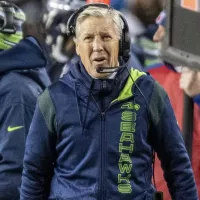
Peter Clay Carroll is an American football coach He is...
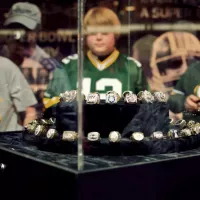
The Super Bowl is the annual championship game of the...
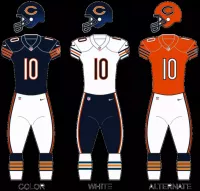
The Chicago Bears are a professional American football team based...
Trending
17 minutes ago Montgomery County Schools reverses electric bus plan; considers snow day calendar changes.

17 minutes ago Discovering Nuria Brancaccio: Rising Star in Women's Tennis
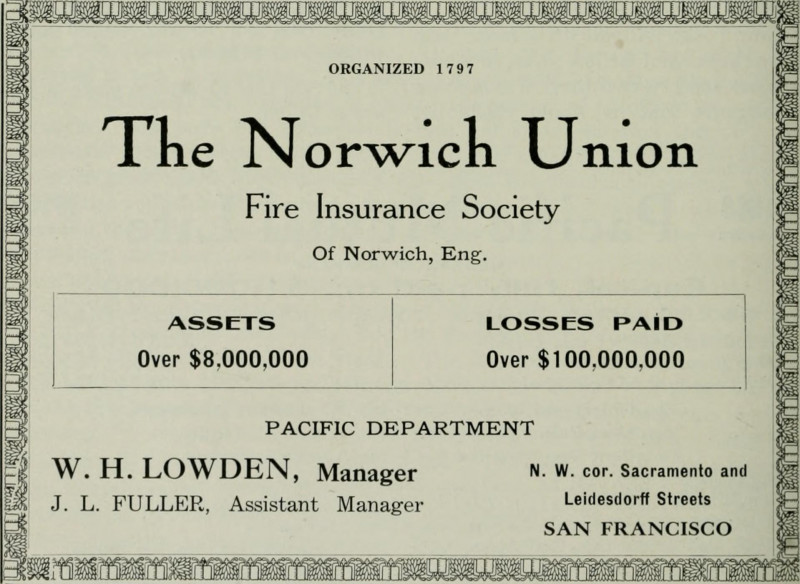
2 hours ago Zurich Insurance to Acquire Beazley in a Landmark $11 Billion Deal

1 hour ago Chwali?ska and Kawa Shine in Antalya: Polish Tennis Players Achieve Notable Wins

1 hour ago Cazzie David discusses her new book 'Delusions' and the writing process.

5 hours ago Warriors face play-in, Curry's injury raises concerns, Kerr lowers expectations, Moody's role?
Popular

Jesse Jackson is an American civil rights activist politician and...

Hillary Diane Rodham Clinton is a prominent American politician lawyer...

Jim Carrey is a Canadian-American actor and comedian celebrated for...

XXXTentacion born Jahseh Dwayne Ricardo Onfroy was a controversial yet...

Michael Joseph Jackson the King of Pop was a highly...

Kashyap Pramod Patel is an American lawyer who became the...
